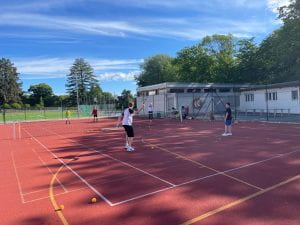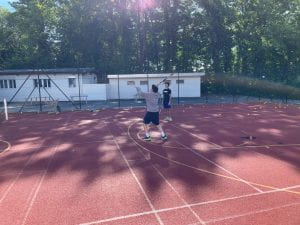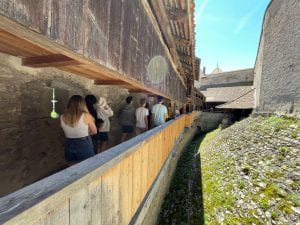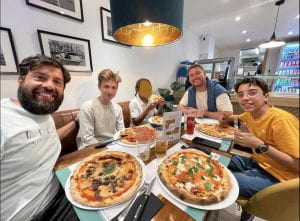Well done Yuto, Chady, Kevin, Bisher, Masafumi, and Manuel! A well-deserved reward!
Author Archives: jgriffiths
International Dinners at Collège du Léman: India
Tennis Activity with Herman, Artem, Dmytro, Chady, Mohamed, Aryan and Bisher
Montreux and Chateau de Chillon!
Copenhagen Trip with Masafumi and Manuel
Dear Parents and Agents,
We have all had a fantastic day exploring the lovely city of Copenhagen.
The Swimming Pool is OPEN!
Race Track Winners! 🏆
Wellbeing Programme Pillar 5 Making Safe and Responsible Choices.
During our well-being tutorial, we focused on Attachment figures this week, the second key takeaway of this Pillar 5. Attachment theory focuses on relationships and bonds (particularly long-term) between people, including those between a parent and child and between romantic partners. The quality of our early attachments profoundly influences two things:
• Our personality
• Our relationships later in life
Depending on their attachment style, our students are either able to empathise with others, share feelings with other people, show trust, engage in long-term relationships, have high self-esteem, enjoy intimate relationships, seek out support etc.
Since our attachment styles are formed so early, we neither remember much about this stage of development nor do we have control over it. Therefore, our attachment traits are typically subconscious and automatic. Consequently, we might find ourselves repeating the same unhealthy patterns, in our relationships with ourselves and with others, repeatedly.
So, since Awareness is the beginning of change, tonight we asked our boys to take an attachment questionnaire quiz to help them figure out their attachment style.
Europa Park, Rust, Germany
Dear Parents and Agents,
This weekend, I was lucky enough to accompany 40 students to Europa Park in Germany, 9 of which were our wonderful boys from Concha Blanca! I am writing this personally as the weekend went so well, and it was a pleasure to share many great moments with our special boys. They all behaved perfectly, respected the rules, the staff, the timings, and represented the school to the highest standard. They also represented their families and showed their personal qualities throughout.
Over a two night stay in the Moxy Rust Hotel, and two visits to Europa Park, we managed to cover all the rides and attractions the boys could have wished for. They also formed new friendships with students from other Boarding Houses, which was pleasing to see. We ate delicious food, and although we had more sugary treats than usually allowed, I think on this occasion, it goes without saying that the boys deserved it!
I hope you all had a wonderful weekend and I look forward to speaking to you soon!
Kind regards,
Mr James
Wellbeing Programme Pillar 5 Making Safe and Responsible Choices.

In tonight’s house assembly, we focused on the first key takeaway of this pillar: Time in, How do you connect with the inner world?
What we experience in our inner world, which includes our feelings, thoughts, perceptions, memories, beliefs, hopes, dreams, desires, motivations, longings etc., can occur even without us being aware of it. The lack of self-awareness entails the failure to see the patterns in our behaviours and thinking. As a result, we risk making choices that are not aligned with what we really are and with what we really want.
On the contrary, when we develop the habit to pay attention to these inner experiences we become more self-aware. This can help us have more control over the decisions and choices we make and prevent us from being at the mercy of our own feelings, desires and external negative pressure.
























